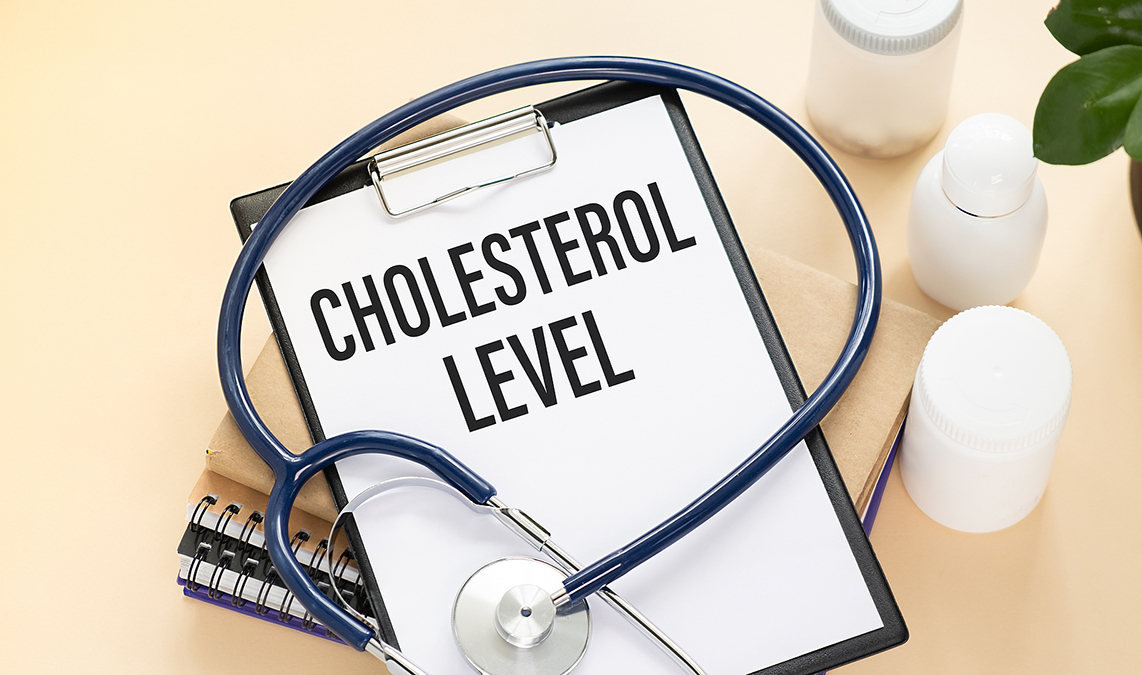 High cholesterol levels or, more precisely, cholesterol plaque buildup in arteries is proven to lead to stroke and heart attack in later life.
High cholesterol levels or, more precisely, cholesterol plaque buildup in arteries is proven to lead to stroke and heart attack in later life.
And having high cholesterol is riskier as we age. It’s much less dangerous for young adults.
But when is the time to take action and try to get your cholesterol under control?
A new study published in the Journal of the American College of Cardiology provides an answer.
Be warned: The results may shock you.
The authors synthesized data from six large studies that had followed their subjects over long periods, from young adulthood to later life.
Taken together, the data outlined the trajectories of 36,030 participants’ low-density lipoprotein (LDL) and high-density lipoprotein (HDL) cholesterol, as well as their systolic and diastolic blood pressure from age 18 onward.
It also provided details of participants’ coronary heart diseases, heart failures, and strokes later in life.
Armed with all this information, the researchers could calculate whether high cholesterol and blood pressure during early adulthood led to a greater risk of heart disease later in life and whether action to lower cholesterol and blood pressure after age 40 reduced these risks.
These were their findings:
1. Those with LDL cholesterol above 100 mg/dl between the ages of 18 and 39 were 64 percent more likely to have coronary heart disease when compared to people with LDL below 100 mg/dl during this period, even if they lowered their cholesterol after age 40.
2. Those with systolic blood pressure readings of 130 (mmHg) or higher during early adulthood were 37 percent more likely to experience heart failure in later life than those with early scores lower than 120 mmHg.
3. Those with a diastolic blood pressure of greater than 80 mmHg during early adulthood were 21 percent more likely to have heart failure later in life than those with scores below 80 mmHg.
At first, these results may seem a bit depressing, as they appear to suggest that nothing you do after age 40 can lower your risk of cardiovascular disease.
But this is not case. Consider the following:
1. While your risk of coronary heart disease (clogged arteries) in later life increases if your cholesterol is high in young adulthood, your risk of stroke and heart failure does not increase if you are able to lower your cholesterol after age 40.
2. Your risk of coronary heart disease in later life is even greater if your cholesterol is high in young adulthood and continues to be high after age 40.
This gives you two good reasons to continue working on your cholesterol no matter what your age.
And what is the best (and easiest) way to lower your cholesterol level at any age? Just cut out this ONE ingredient you didn’t even know you were consuming…
And if your blood pressure is too high, discover how three easy exercises can drop your blood pressure below 120/80 — starting today…

 Overcoming IBD
Overcoming IBD Multiple Sclerosis
Multiple Sclerosis Banishing Bronchitis
Banishing Bronchitis Gum Disease Gone
Gum Disease Gone Overcoming Onychomycosis
Overcoming Onychomycosis Neuropathy No More
Neuropathy No More The Prostate Protocol
The Prostate Protocol Brain Booster
Brain Booster
 Ironbound
Ironbound
 Solution for Shingles
Solution for Shingles
 The Bone Density Solution
The Bone Density Solution
 The Ultimate Healing Protocol
The Ultimate Healing Protocol
 The Parkinson's Protocol
The Parkinson's Protocol
 The Chronic Kidney Disease Solution
The Chronic Kidney Disease Solution
 Overthrowing Anxiety
Overthrowing Anxiety The Fatty Liver Solution
The Fatty Liver Solution The Hypothyroidism Solution
The Hypothyroidism Solution
 The End of Gout
The End of Gout The Blood Pressure Program
The Blood Pressure Program
 The Oxigized Cholesterol Strategy
The Oxigized Cholesterol Strategy
 Stop Snoring And Sleep Apnea Program
Stop Snoring And Sleep Apnea Program
 The Arthritis Strategy
The Arthritis Strategy The Vertigo & Dizziness Program
The Vertigo & Dizziness Program The 3-Step Diabetes Strategy
The 3-Step Diabetes Strategy Hemorrhoids Healing Protocol
Hemorrhoids Healing Protocol The Erectile Dysfunction Master
The Erectile Dysfunction Master Weight Loss Breeze
Weight Loss Breeze The IBS Program
The IBS Program The Insomnia Program
The Insomnia Program The Migraine and Headache Program
The Migraine and Headache Program The Neck Pain Solution
The Neck Pain Solution The Menopause Solution
The Menopause Solution The Ejaculation Master
The Ejaculation Master The TMJ Solution
The TMJ Solution The Acid Reflux Solution
The Acid Reflux Solution The Fibromyalgia Solution
The Fibromyalgia Solution The Psoriasis Strategy
The Psoriasis Strategy